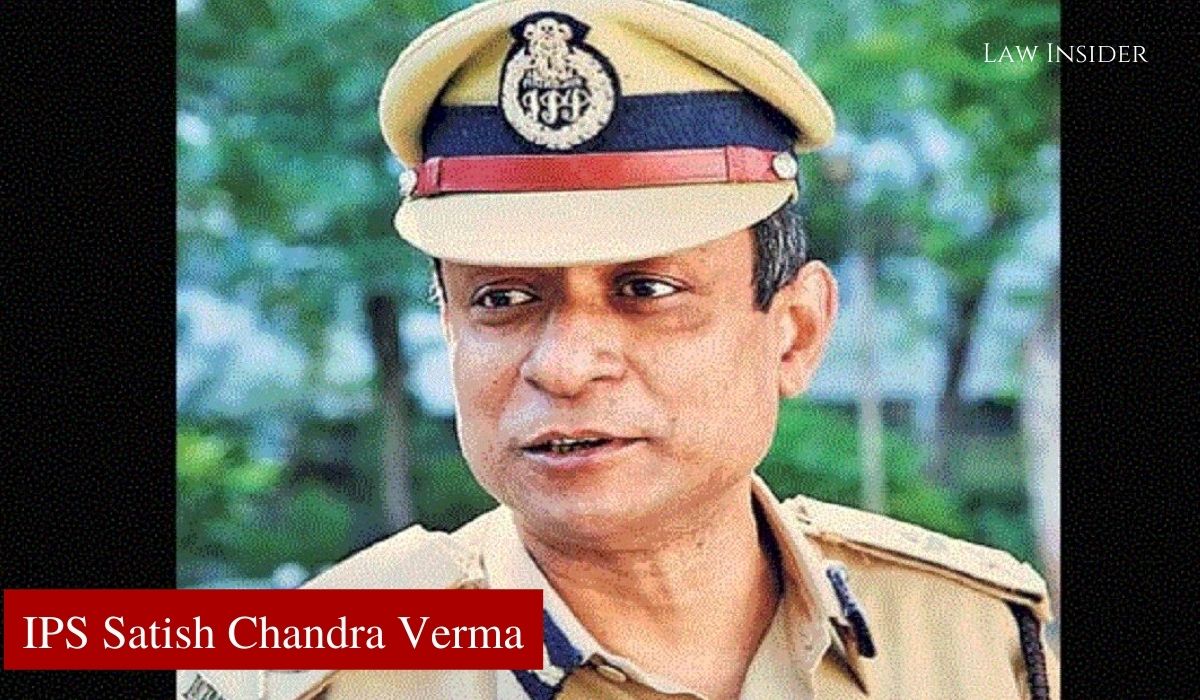Prerna Gala
Published on: September 14, 2022 at 20:04 IST
The killing of Ishrat Jahan in 2004 in BJP-ruled Gujarat was deemed a false encounter, according to court-monitored investigations, according to a petition filed by a former IPS officer on Tuesday seeking his discharge from service.
Additionally, Satish Chandra Verma asserts that in 2016, he discovered significant financial irregularities at the North Eastern Electric Power Corporation (NEEPCO), a Shillong-based central public sector company, involving reportedly powerful members of the federal government.
The former officer from the Gujarat Cadre claims that he was fired on August 30 of this year despite a Delhi High Court order prohibiting any “prejudicial” action till the next hearing on January 24 of the next year.
Verma was scheduled to retire this year on September 30.
Ishrat, a college student from Mumbai who was 19 years old, and her three companions, Javed Shaikh alias Pranesh Pillai, Amjadali Akbarali Rana, and Zeeshan Johar, were killed by police on June 15, 2004, in Ahmedabad.
The Gujarat police claimed the four were Lashkar-e-Taiba agents who had entered the state with the intention of killing Prime Minister Narendra Modi, who was the state’s then chief minister.
According to Verma’s appeal, he was a member of a Special Investigation Team (SIT) under the supervision of the Gujarat High Court that ruled the killings to have been staged in December 2011.
According to the suit, the Gujarat High Court then tasked the CBI with the inquiry and instructed the federal agency to enlist Verma’s assistance.
It adds that the assistance Verma provided to the CBI “was instrumental in disclosure of the conspiracy involving officers of Intelligence Bureau (IB) and Gujarat police, which aggravated the displeasure of the state against him (Verma)”.
According to the plea, Verma remained the subject of “false complaints” even as the SIT investigation was ongoing, which prompted the Gujarat High Court to order in August 2011 that, “when the members of the SIT are acting under the directions of this court, any complaint against the functioning of any member in the course of such investigation is required to be reported to this court and no attempt should be made for creating any hindrance or obstruction in the investigation”.
After that, between November 2011 and May 2014, “retaliatory action by state begun against the petitioner,” claims Verma, who claims he was wrongfully accused of being responsible for the deaths of three individuals in an incident that occurred in 1996.
Verma claims he was fired as a result of a “charge document” handed to him on August 13, 2018, for indiscipline for a media interview he gave on the Ishrat “encounter” in March 2016 while he was working at NEEPCO.
The nearly 2.5-year gap between the alleged offence and the “charge memo” has been emphasised by Verma.
The plea claims that on September 22 of last year, the Delhi High Court halted the Union Home Ministry’s right to discipline Verma.
On August 30 of this year, the high court reportedly lifted the injunction and “allowed the (Centre) to pass final orders and had directed that the final orders, if adverse to the petitioner, shall not be implemented without the court’s permission until the next date of hearing (24.01.2023),” according to the statement.
The petition, submitted through attorney Divyesh Pratap Singh, continues, “Immediately after the high court passed the order dated 30.08.2022, the (Centre) passed an order on the same date dismissing the petitioner from service ‘with immediate effect’ and served it on the petitioner at Coimbatore on 01.09.2022.”
The suit claims that the Delhi High Court then permitted the Union home ministry to implement the August 30 ruling by imposing a “penalty of expulsion from service with immediate effect.”
It further states that Verma was not given any notice before this order was made by the high court.
A trial court in Gujarat is currently hearing charges against a number of the police officers involved in the Ishrat “encounter.”
According to Verma, “state agents attempted to tamper with witnesses/evidence during the inquiry.”
According to him, “a deliberate media campaign (was) initiated to discredit the evidence in the Ishrat Jahan encounter case” between mid-February 2016 and March 3, 2016.
“Senior members of the ruling party and private persons (retired officers) joined in the campaign. Specifically, false accusations of torture were made by Shri R.V.S. Mani against the petitioner,” Verma says.
Mani worked as an undersecretary for the Union home ministry but is now retired. He had undergone testing by the CBI as a witness in the Ishrat case.

